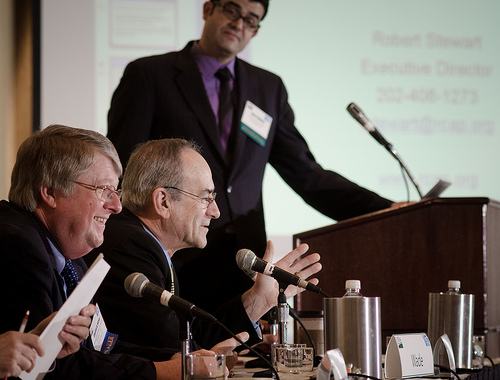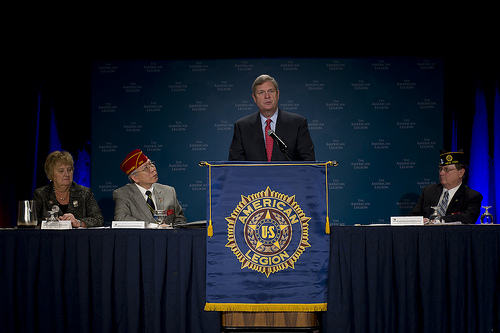El 23 de febrero del 2012, niños de clubes 4-H en Puerto Rico aprendieron sobre la importancia de un manejo adecuado de alimentos, por medio del campamento de inocuidad alimentaria. El Personal para al Educación de Inocuidad Alimentaria del Servicio de Inocuidad e Inspección de Alimentos trabajó en colaboración con el Consorcio para la Educación de Seguridad de Alimentos en Puerto Rico, al recibir 60 niños en el Jardín Botánico de la Universidad de Puerto Rico, en sus esfuerzos de reducir riesgos de enfermedades causadas a través de los alimentos al introducir nuevos hábitos que permanezcan con los niños por toda la vida.
Durante el evento, llamado “Explorando el Mundo de Inocuidad Alimentaria a través de la Ciencia”, los clubes 4-H rotaron por 6 estaciones de educación interactiva que les enseñaron a cómo prevenir el envenenamiento por alimentos por medio de los cuatro comportamientos para un buen manejo de alimentos de la campaña Familias Preparando Alimentos Adecuadamente: Limpiar, Separar, Cocinar y Enfriar. Read more »
Yesterday, members of Puerto Rico’s 4-H club learned about the importance of safe food handling at a hands-on, entertaining food safety camp. The Food Safety and Inspection Service’s Food Safety Education Staff collaborated with the Puerto Rico Food Safety Educational Consortium to host 60 kids at the University of Puerto Rico’s Botanical Gardens in an effort to instill lifelong good habits that will reduce their risk of foodborne illness.
During the event, called “Exploring the World of Food Safety through Science,” the 4-H club toured 6 interactive learning stations that taught them how to prevent food poisoning by featuring the four food safety behaviors from the Food Safe Families campaign: Clean, Separate, Cook, and Chill. Read more »

Screenshot of the cover of the Know Your Farmer, Know Your Food Compass.
Are you a farmer, rancher or food business entrepreneur interested in local and regionally-produced food?
Are you a community leader wondering how local and regional food systems can help your local economy?
Are you a consumer interested in learning more about where your food comes from? Read more »

National Rural Water Association Deputy CEO Sam Wade (center) responds to a question, during the Rural Development session on “Why Every American Should Care About the Future of Rural Water,” at the 2012 Agricultural Outlook Forum, “Moving Agriculture Forward, Growing, Innovating and Celebrating 150 Years” held at the Crystal Gateway Marriott Hotel, Arlington, Virginia, on Friday, February 24, 2012. USDA photo by Lance Cheung.
As rural Americans look for new ways to compete globally in the areas of renewable energy production, business expansion and job creation, one factor that is often taken for granted is the availability of a ready supply of water. In much of America, with the exception of parts of the West, water has often been thought of as accessible as the air. Those attitudes are changing. Read more »

U.S. Secretary of Agriculture Tom Vilsack speaks to the American Legion prior to signing a memorandum of understanding with the American Legion which will help our Nation's veterans and transitioning military service members find positions that promote agriculture, animal and plant health, food safety, nutrition, conservation and rural communities at the Washington Hilton in Washington, D.C., on Tuesday February 28, 2012. USDA Photo by Johnny Bivera.
Today about 6.1 million of America’s veterans live in rural communities. About 38 percent of military recruits call rural America home, but these communities face real economic challenges. So over the past two years – at President Obama’s direction – USDA and the rest of the federal government have taken historic action to support rural economies. Read more »



